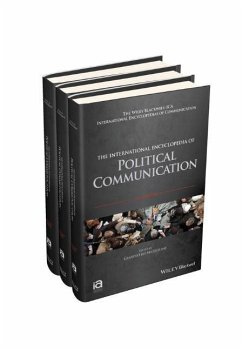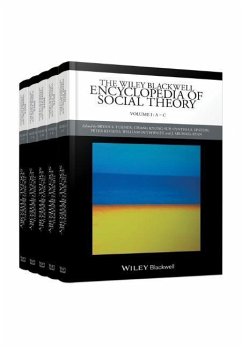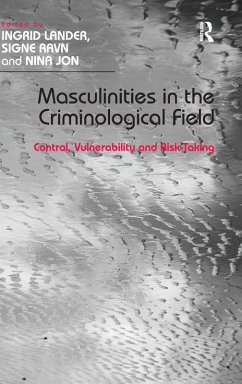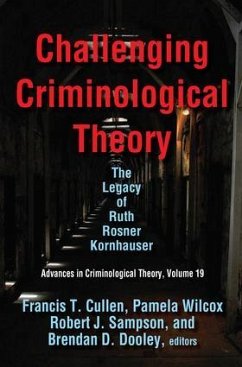Nicht lieferbar
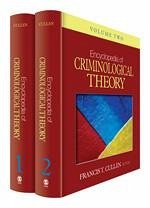
Encyclopedia of Criminological Theory 2 Volume Set
Versandkostenfrei!
Nicht lieferbar
'Consistently excellent.... The level and coverage of the content make this an invaluable reference for students studying criminology or taking criminal psychology modules at degree level and beyond' - Adam Tocock, Reference Reviews In discussing a criminology topic, lecturers and course textbooks often toss out names of theorists or make a sideways reference to a particular theory and move on, as if assuming their student audience possesses the necessary background to appreciate and integrate the reference. However, university reference librarians can tell you this is often far from the case....
'Consistently excellent.... The level and coverage of the content make this an invaluable reference for students studying criminology or taking criminal psychology modules at degree level and beyond' - Adam Tocock, Reference Reviews In discussing a criminology topic, lecturers and course textbooks often toss out names of theorists or make a sideways reference to a particular theory and move on, as if assuming their student audience possesses the necessary background to appreciate and integrate the reference. However, university reference librarians can tell you this is often far from the case. Students often approach them seeking a source to provide a quick overview of a particular theory or theorist with just the basics - the who, what, where, how and why, if you will. And reference librarians often find it difficult to guide these students to a quick, one-stop source. In response, SAGE Reference is publishing the two-volume Encyclopedia of Criminological Theory, available in both print and electronic formats. This serves as a reference source for anyone interested in the roots of contemporary criminological theory. Drawing together a team of international scholars, it examines the global landscape of all the key theories and the theorists behind them, presenting them in the context needed to understand their strengths and weaknesses. In addition to interpretations of long-established theories, it also offers essays on cutting-edge research as one might find in a handbook. And, like an unabridged dictionary, it provides concise, to-the-point definitions of key concepts, ideas, schools, and figures. Coverage will include: contexts and concepts in criminological theory the social construction of crime policy implications of theory diversity and intercultural contexts conflict theory rational choice theories conservative criminology feminist theory.




